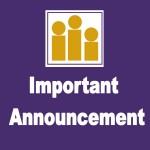Prevention and Treatment of Youth Sport Injuries
an Online Resource
Concussions can manifest from a direct blow to the head or a blow to the body where the energy is transferred into the head. Signs and symptoms of a concussion are amnesia, confusion, disorientation, easily distracted, excessive drowsiness, feeling “foggy”, impaired consciousness, inappropriate behaviors, poor concentration or attention, seeing stars or flashing lights, slow to answer questions, ataxia or loss of balance, blurry vision, decreased ability, dizziness, double vision, fatigue, headache, lightheadedness, nausea, poor coordination, ringing in the ears, seizures, slurred speech, vacant stare, vertigo, emotional liability, irritability, low frustration tolerance, personality changes, nervousness, and sadness. If one or more of the preceding symptoms occur a concussion should be suspected and treated as a full concussion. There is no such thing as a partial concussion. They are all significant. The athlete should be immediately presented to an athletic trainer or physician for evaluation of severity of injury. If no one is available the athlete should present to an Emergency Room for cranial imaging to assess for severity of injury. Be aware that concussion symptoms may not be immediate and an athlete suspected of sustaining a concussion should be monitored regularly to assess for the progression of symptoms.
 Treating you well since 1948
Treating you well since 1948 


